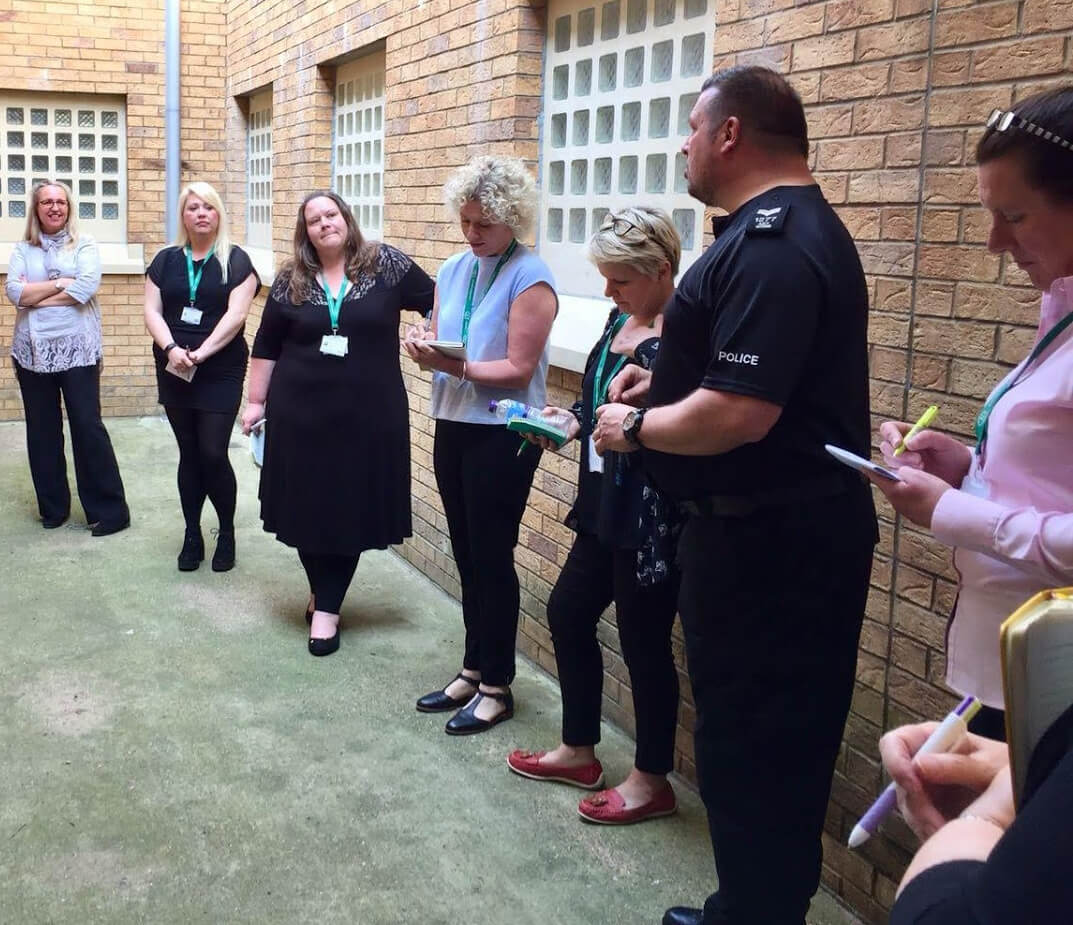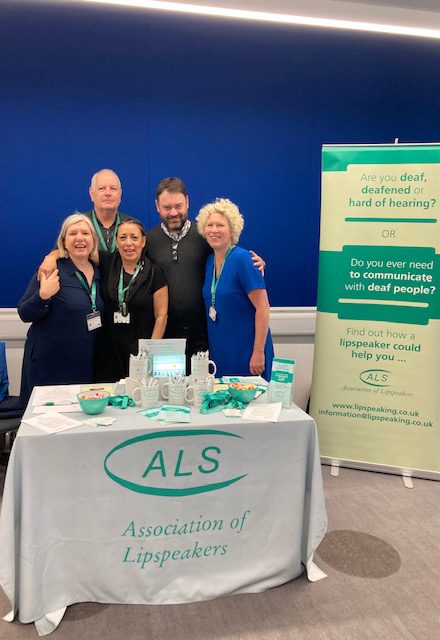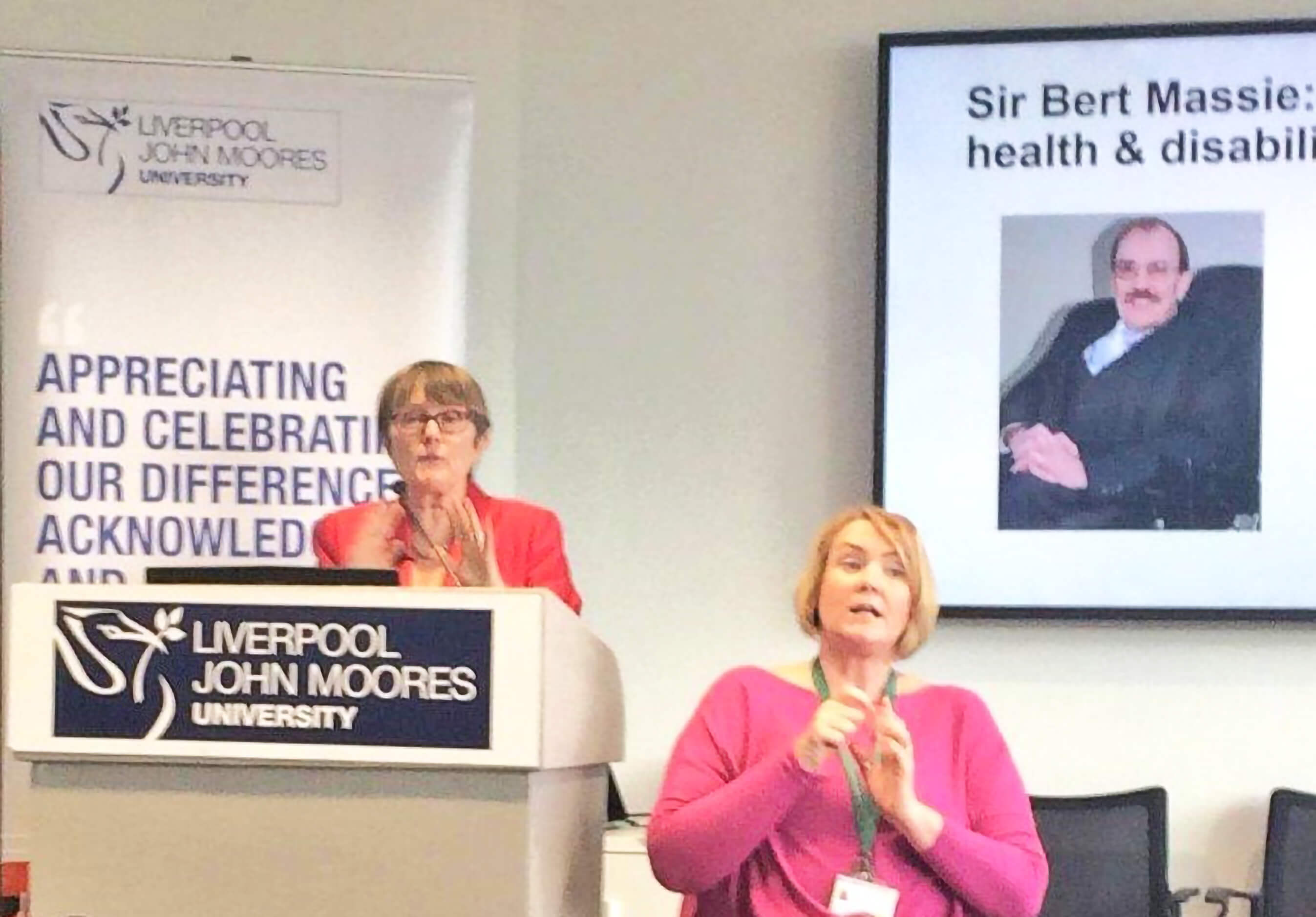
History
History
The Early Years
Lipspeaking in England began sixty years ago. It was created as a ‘platform skill’ by Bill Snowden and Muriel Shepherd as their communication tactic for including everyone at the meetings of their local hard of hearing Club up in Darlington, in the North East, in 1948.
Because of the success of their invention, news spread. Regional rallies of clubs of the British Association of the Hard of Hearing (BAHOH) saw

The Pioneers
The common thread, of course, was the vision and determination of a handful of individuals to see this so useful tool developed to meet an ever-expanding need and to raise awareness of the benefits much further afield than the confines of the clubs.
read more
Muriel Shepherd and Bill Snowden in the North East; Douglas Maxwell from the North West, who was also chair of the BAHOH Education Committee at an important time for this development; Jesse Gibbs, the moving force in the south organising the Southern Rally in the Eastbourne/Worthing area for many years; Vera Roberts and Louisa Neate; Eric Amon and Bill Shield. These individuals knew first hand, or through living with deafened relatives, what improvements to the quality of life lipreading and the use of
This was true not only in the hard of hearing clubs but also in the hospitals. In Oxford, in 1949, the ENT consultant Gavin Livingstone, with his wife Felicity, encouraged the setting up of the Oxford Club and were fortunate in having the first hearing therapist in the country. Kathleen Jagger introduced both group and individual lipreading classes in the ENT department.
Clubs held lipreading classes and competitions, the competitions developed into regional and national events culminating in the annual National Finals Competition. lipreading teachers, several of whom were also
Charles Mardell, Secretary-General of Hearing Concern for 22 years, who, though totally deaf, found he could easily follow the
All this at a time before the great strides in technical aids that we take for granted today. Lipreading was an essential skill that allowed the use of

Development and Training
In the 1960s it was realised that many more lipspeakers were needed and that a more formal selection and training programme should be put in place. Significant in the history of lipspeaking were the training courses held at Burton Manor and taught by Gwen Cairns. Ruth Waddle well remembers her training there in October 1966 during which the news was brought to participants of the Aberfan disaster.
Clubs offered sponsorship to lipspeakers on their training courses at Burton Manor. The Midland Rally was an important group of clubs offering both sponsorship and practice opportunities, invaluable support and constructive feedback to those lipspeakers wanting to improve their skills.
In the 1970s Birdie Warshaw took on the role of lead tutor and courses were held at Easthampstead Park, a Berkshire County Council training center near Wokingham. Birdie had the professional background to select, organise and teach people who were thought to be lipspeaker material. She was able to call on the lipreading skills of BAHOH members, who used their skills at work as well as outside, to act as co-tutors and examiners, all of whom worked hard, with few resources and surprisingly little support, to develop curricula and examining schemes, recruit and train suitable volunteers and to produce the higher Level 2 curriculum, teaching skills that could be used in more and more situations outside the club environment.
From the 1980s BAHOH courses were well supported by Christine Chubb at the University of Bristol and by Anita Clokie at Manchester Metropolitan University.
In the 1990s CACDP employed a part-time lipspeaking Development Officer and the curriculum and examination process developed further, in line with national qualifications.
In 2008, a new curriculum and examination structure were introduced by CACDP and lipspeaking units will be offered by Manchester Metropolitan University and the RNID, with tutors from the Association of Lipspeakers being involved in both courses.
Government Recognition
While BAHOH was developing its pool of
read more
In 1974 CACDP was born with an initial two-year grant from the Department of Health. Through their work many more sign language classes became available and a structured professional training pathway was developed for sign language interpreters.
The Manpower Services Commission was set up and offered a free, structured one-year Communicator training programme, hosted by several colleges throughout England and Wales. The course taught deaf awareness, sign language to Level 2, notetaking for deaf people and, as an optional unit, Level 1 lipspeaking. The successful students would become Communicators working alongside deaf young people in colleges of further education.
This was the first time lipspeaker training was nationally available outside the BAHOH umbrella. However, the tutors and examiners for the lipspeaking unit were all recruited by the BAHOH lipspeaker training team, now being led by Glenda Bateman. During the 1980s this team was employed by the Manpower Services Commission and for the first time lipspeaker training tutors and examiners were paid for their expertise and teaching skills. This team worked throughout England, in Wales and Northern Ireland and successfully trained over 100 lipspeakers to Level 1. The majority of these went on to become registered sign language interpreters, working in every sphere of public life.
Lipspeaking certification was awarded jointly by Hearing Concern and CACDP. The curriculum and examination development was still taking place within Hearing Concern, while Bill Tate was Chairman of the Education Committee.
Universal Awareness

The introduction of the Disability Discrimination Act (DDA), the BBC weekly television
Hearing Concern hugely increased public awareness with the nationwide introduction of their Sympathetic Hearing Scheme and the ‘listening ear’ logo, along with loop systems, and these are still to be seen in banks and building societies, shops, tourist attractions, rail stations, supermarkets, and many other places.
In 1992, the findings of the Commission of Enquiry into Human Aids to Communication recognised that the lipspeaking curriculum and examination process needed to be further developed in a similar way to sign language interpreting. This was outside the scope of the HC Education Committee and the work passed to CACDP. The report also highlighted the need for funding for development and training as well as service provision.
During the 1990s Hearing Concern, under the guidance of Marwood Braund and with the professional expertise of Richard Gray, published the HC Register of L
The Association of Lipspeakers (ALS)
At the same time, Glenda Bateman realised a long-held desire and established the Association of Lipspeakers (ALS). This professional organisation is now celebrating its 20th anniversary. A great deal has happened in those 20 years.
read more
Digital hearing aids, technical aids and the almost universal use of the computer and its many spin-offs have made life much easier and more enjoyable for very many hard of hearing people. Cochlear implants have given back hearing to many people who were deafened through illness. But these aids are not always quite enough in every situation and there remains a significant number of deaf and deafened people who rely entirely on lipreading.
For them, using a
There is now a Directory of
The training and skills of
The cost of these services is mostly met with government funding in one way or another. Even private art venues, such as the Royal Academy of Art, provide
The current position of
Association of Lipspeakers
Our Commitment
We aim to provide a first-class service and we always welcome feedback.
Contact Us
In Association With

The ALS Steering Group
The ALS steering group is made up of working
